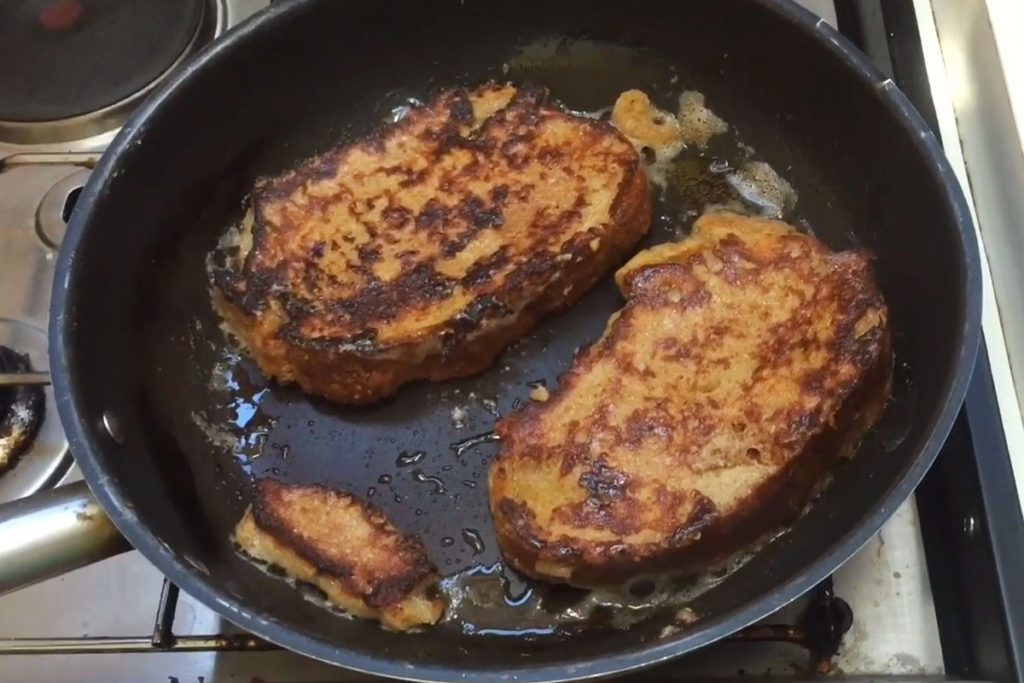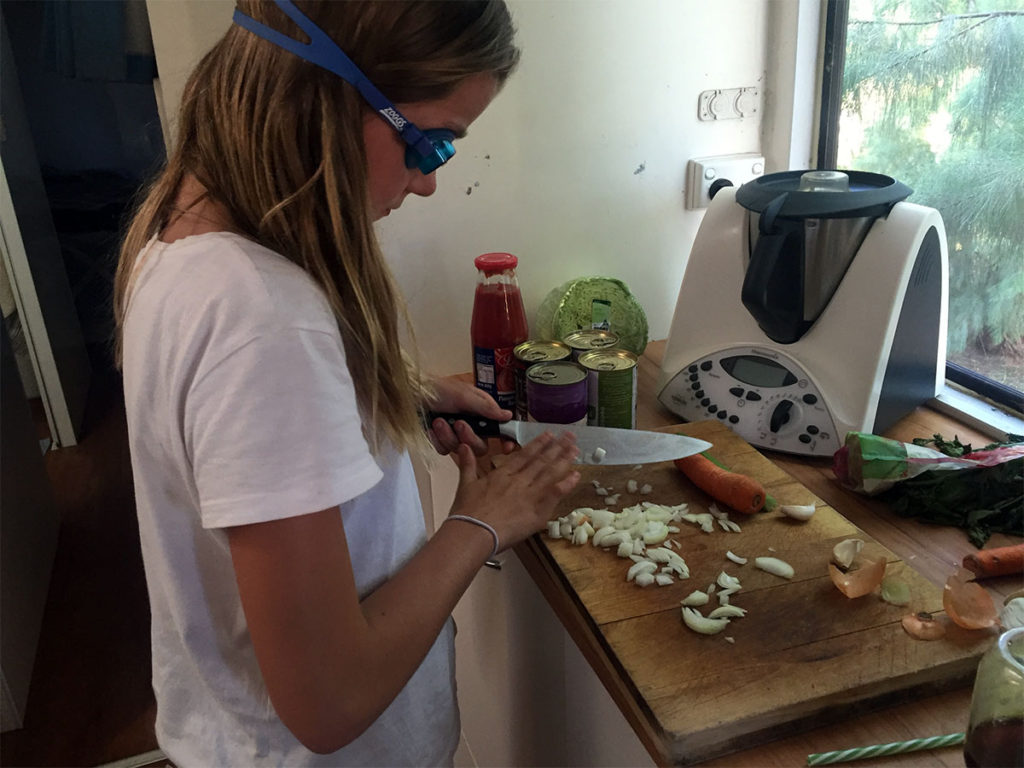
This year, we’ve started home economics as part of our 10yo and 6yo home schooling curriculum. I’ve always made a habit of including the kids in different activities in the kitchen, ever since they were young, but this is different. Home economics is teaching them about what it takes to cook an entire meal – including buying the produce, how much it costs, looking for what’s in season, through to the actual cooking from the real food ingredients – from scratch. “Are you insane?” you may be thinking? Yes, sometimes in the midst of their classes, I think maybe I am. But the more classes I run with them, the more important I am starting to realise these classes are. I wanted to share with you some of my discoveries of Why Home Economics With Our Kids Is Important.
Why NOT to teach your kids to cook?
Oh yes, there are reasons such as:
- Time – I don’t have the time!
- The mess – there is so much more mess!
- Patience test – it tests your patience in so many ways
But what if I tell you that these are the very reasons why you should teach your kids to cook?
Imagine: when your child knows how to cook, you can get some time back, because while they’re cooking a meal, you get to take some time off.
What if you teach them that cleaning up the mess they make is an important part of cooking? And because they have to clean up after themselves, they learn to be less messy. What if this carried over to other parts of their life, and they started to clean up after themselves? You’ve just got some more time back!
And lastly, patience: What if being more patient with them in the kitchen taught you to calm your responses to other things that happen? I mean, not just in the kitchen, but in other areas in your relationship with your children? How do you think this could transform your household?
The reasons why NOT to teach your kids to cook, are some of the most important reasons why you SHOULD teach your kids to cook.
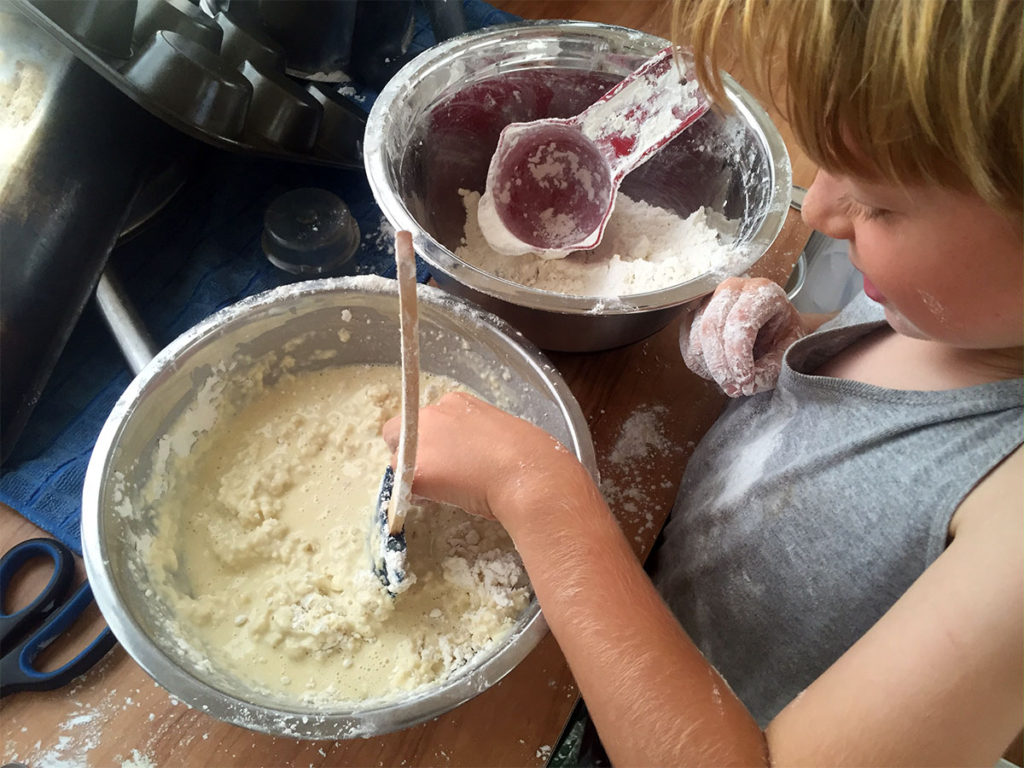
My Approach to Home Economics
I have never had formal training in the kitchen. I learnt some basics in high school – like how to make scrambled eggs – but mostly I learnt from watching my Mum and Nan as a little girl. Then, I learned more out of necessity when I moved out of home.
I am not a Masterchef, but I do count myself as a smart cook. Everything I cook, I need to be able to use it another way, preferably 3 ways. This way I can use the same ingredients and methods to make lots of different meals. I want to pass “being smart in the kitchen” on to my kids, because I know it will help keep them in good health, save them time, and save them money when they move out of home.
My approach to our home economics is very simple – I have 3 main rules:
1. Give them ownership of the class
I usually give the kids 3 options of what they can cook in their class, and let them choose from those options. This gives them ownership of what they are making, and it helps ensure they don’t get bored halfway through the class.
2. Mess is our friend
I’ve given up on the idea of the cooking class being mess-free. In fact, I have discovered mess is our friend because we get more laughs when that happens. And they actually learn not to do that again next time. We always tell our kids our brain grows from mistakes. So when they poured flour straight from the glass canister into a measuring cup and it went all over the bench, then they had to clean it up, the learnt pretty quick not to do that again.
3. Improvise, and go where the class takes you
At first our classes were very structured and I focussed on trying to get them to do everything the right way. Now, I just let the class unfold and improvise. I use whatever happens as a learning experience. This is especially important with Indrani because she’s 10yo – anyone with a 10yo girl, knows how they already think they know everything (bahaha… grey hairs in the making). So I let her do what she thinks she knows, and then when it doesn’t quite work smoothly, I offer a different way for her to do it the next time. Oh and the lessons are so much more than cooking – their maths, their self esteem, their patience and more.
What A Child Learns From Home Economics
I am just doing a brain dump here from what I have noticed from our own kids. I’m sure there are more than these.
- Improved relationship with you – I put this first because what happens when you’re in the kitchen, guiding your child, but trusting them with a meal for the family, is something magical. You are close, you banter about anything and everything, you laugh, you celebrate – even the ‘epic fails’.
- Pride in themselves – the smile that spreads across their face when they serve up a meal to the family simply makes your heart melt. They are so proud of themselves. Our daughter has started hand writing and drawing pictures for each of her recipes. She’s taking such pride in her very own cook book.
- Increased self confidence – every time they cook something, their self confidence increases. They become more prepared and more excited to put themselves out there and try new things.
- Increased self esteem – self achievement leads to improved belief in themselves.
- Improved relationship to food – choosing produce helps them understand about freshness, teaches them to look at where the produce is from, develops an appreciation for flavours, and a willingness to try foods.
- The skill of following instructions – this teaches them there is an order to do things but it also teaches them to think out of the box too – for instance, if you don’t have maple syrup, what else can you use instead.
- Improved maths – measurement, servings etc are all an opportunity to improve maths.
- Shopping skills – an understanding of what to look for in produce along with how much food costs.
- Development of kitchen techniques – understanding the difference between slicing and dicing, sauteeing and simmering etc.
- Understanding culture – different meals may come from different cultures / countries. It’s an opportunity to look at where these countries are and why these foods are popular there.
- Improved appreciation of parents – our kids learn what it takes to turn out a meal for breakfast lunch and dinner. They realise it’s not instantaneous, that it takes effort and love to make it happen.
Pride, self confidence, self esteem, better appreciation for parents are important lessons our kids learn from home economics.
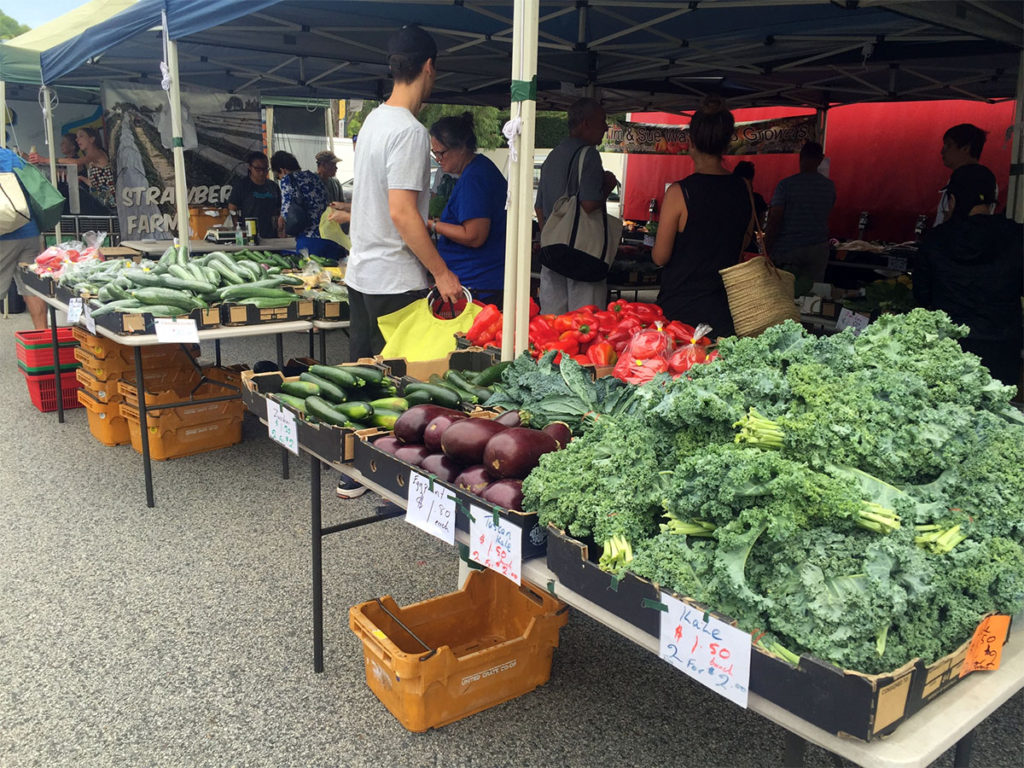
How Does A Child Feel When They Learn To Cook?
I decided that the best way to articulate this was to ask our 10yo daughter, Indrani, to write some words for you. Here’s what she wrote:
“I have just started cooking quite a bit in the kitchen. I can say, from personal experience, I get a thrill whenever I cook a meal. For example, say you’ve just spent a good hour or so preparing and cooking a meal and then when you eat it you’re like ‘Oh my god, did I actually cook this? It’s so good!’, it really makes all the mess worthwhile. It’s even more rewarding when you serve it up and your family says ‘Thank you, this really good!’, or when you’ve cooked a meal Mum cooks often and your little brother runs up to you and whispers ‘You cook this better than Mum!’ I really do believe it’s SUPER important to teach your children how to cook, because once they are good enough, you can have days off cooking too!” – Indrani 10yo
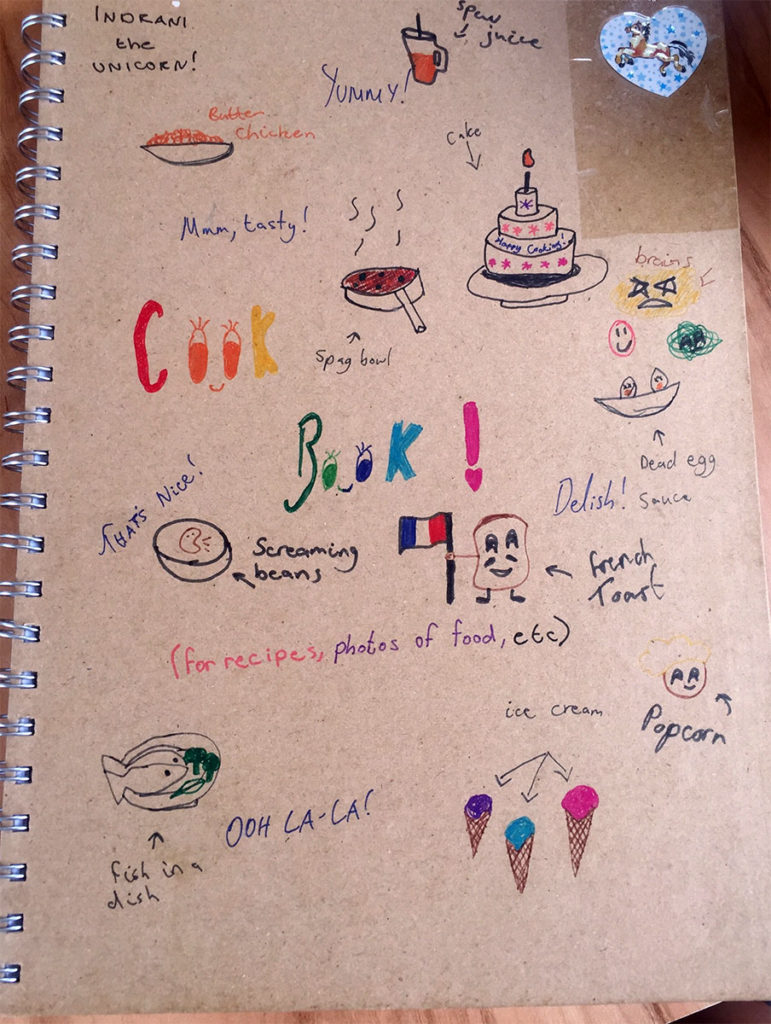
3 Simple Ways You Can Get Started With Your Kids
Here’s 5 simple ideas of you can get your kids started.
1. Take them to a farmers market
Remember Home Ec is not just about cooking, it’s about produce, where it comes from, what’s in season, what to look for etc. The best and most fun way to do this is to take your kids to a farmers market. At the farmers market, you’ll find many stalls which actually allow sampling of their produce too. Let your kids choose items to be included in this weeks lunchboxes or dinner plates.
2. Make them feel useful
There are so many things we do in the kitchen to prepare a meal that we don’t even realise how much goes into it until our kids start doing it and remind us what it takes to get a meal on the table. But we don’t really have to do all this on our own. Our kids get a self esteem boost if we invite them into the kitchen to help us. There are many tasks you can us for help with – be sure to pitch this as it would really help me out if you can…. if they resist you could always use reverse psychology and say I wasn’t really sure if you could actually do that anyway – of course, they’ll love to prove you wrong. Some of the things you can ask for help with are stirring, cutting (if old enough), setting the table, getting everyone a drink before dinner, measuring, even doing the dishes.
3. Teach them about eggs
Eggs are a nutritional powerhouse, they are packed with proteins, good fats, rich in iron and B vitamins amongst other things. They are a fantastic way to start the day. Teach your kids how to boil eggs or make scramble eggs.
Want to see one of our home economics classes in action?
Here’s a video blog of Indrani’s Home Economics – Jude Blereau’s French Toast. This is a warts and all video of her entire home ec class where she produced delicious French Toast for her breakfast.
